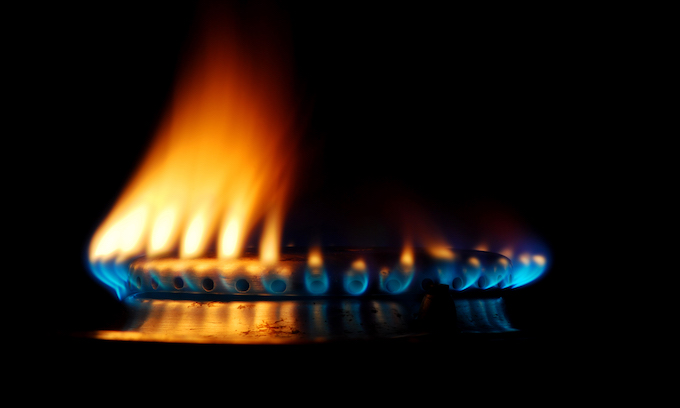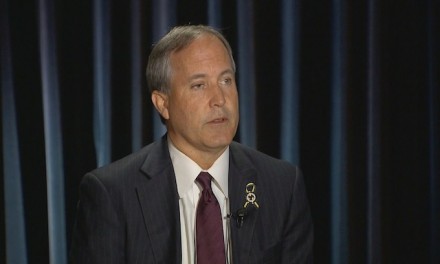More than two dozen environmental organizations have petitioned the Environmental Protection Agency to ban the use of natural gas for home heating nationwide, arguing the federal agency must regulate “deadly pollution from heating appliances.”
The petition, sponsored by the Sierra Club, claims fossil fuel-fired home furnaces, water heaters, clothes dryers and stoves emit enough nitrogen dioxide (NOx) and carbon dioxide (CO2) that they must be classified as “new stationary sources” of air pollutants, placing them in the same regulatory regime as power plants and factories.
The petition resembles — but goes beyond — Gov. Jared Polis’ Greenhouse Gas Roadmap for a clean heat program, a key component of efforts to transition to a natural gas-free heating economy.
“Gas heating appliances, such as water heaters, furnaces, boilers, stoves, and clothes dryers represent about 80% of fossil fuel-fired heating appliances and emit the majority of appliance pollution, including both climate-disrupting GHG emissions and pollutants that directly impact human health,” the petition says.
“The data is incontrovertible: heating appliances in residential and commercial buildings contribute significantly to pollution that endangers public health and welfare. The emissions from these sources are major drivers of the dual crises of climate change and unclean air,” the petition adds.
Some critics described the petition as a sham and excuse to go after carbon dioxide emissions, with regulation of nitrogen dioxide as the vehicle to accomplish that goal.
The petition’s reading would force the EPA to set NOx standards that would effectively ban the use of natural gas in all new construction within a year after the regulation is implemented. Even existing gas appliances would have to be replaced eventually — at the end of their life cycle or when they break down.
“Emissions from buildings have a harmful, and frankly scary, impact on human health and contribute significantly to the climate crisis,” Amneh Minkara, the Sierra Club’s Building Electrification Campaign deputy director, said in a news release.
The petitioners said policymakers “must act at the local, state, and federal levels to ensure that marginalized communities are among the first to benefit from the transition away from fossil fuel systems in favor of electric technology.”
News of the petition prompted Sen. Jerry Sonnenberg, R-Sterling, to say federal agencies and state regulators are “out of control.”
“Both our federal and state regulators are creating uncertainty by trying to move everyone to use anything electric, which we don’t have enough electricity to power,” he said. “Nobody wants that except for the regulators, who refuse to see the harm they are doing.”
Sonnenberg added: “The power that these agencies want to exert over families trying to make ends meet with the high inflation is ridiculous. I trust the people to make the decisions that best fit their budget and needs, rather than government telling them they know what is best for these families. Eliminating consumer choices to one option is never a good policy.”
The petition, if implemented by the EPA, would require homeowners to replace gas appliances when they break down or must be replaced with expensive new heat pump technology.
Critics said the mandate would also increase the cost of new homes, including multifamily housing.
“We just don’t have enough resources to go around, especially when we start to look at how can we reach our most vulnerable Coloradans that are on the edge of solvency,” said Peter LiFari, executive director of Adams County’s housing authority.
Most heat pumps are installed in temperate climates, where indoor and outdoor temperatures are reasonably close together, and they are not certified to work in temperatures below 17 degrees, according to the U.S. Department of Energy.
Developer Tim Walsh, who won his Republican primary race for the legislature in June, told The Gazette that his industry has talked to manufacturers about developing advanced cold-weather heat pumps on a larger scale to bring their cost down, but there “just isn’t a demand there to do that.”
“So, it’s fairly expensive,” he said. “If your furnace goes out and you need to replace it with a heat pump versus a gas fired furnace, it’s probably going to be $10,000 to $12,000. I think it’s going to disproportionately hurt the lowest-earning people in Colorado.”
The petitioners acknowledged that “financial assistance may be necessary for many consumers to make the transition from gas, oil, and propane appliances to non-emitting alternatives.”
Other expenses they mentioned may add to the cost of owning a home, including additional insulation and weatherization, electric panel and service upgrades or replacements and “more basic safety and health upgrades before even weatherization can begin.”
There are some newer heat pump technologies that work better at low temperatures, but the initial costs of installing ground-source heat pumps, which use heat-exchange coils buried underground, is more than twice as expensive as installing the more common air-source heat pumps, according to the U.S. Department of Energy.
Carrier, one of the largest heating and air conditioning manufacturers in the U.S., said high efficiency heat pumps in warmer climates “typically use less source energy on average compared to gas furnaces.”
In colder climates, 95% efficient gas furnaces fare better than heat pumps, the company said, adding lifetime operating costs should be considered, particularly given the relatively lower cost of natural gas compared to electricity.
The Sierra Club petition calls the fact that home heating devices are not regulated like powerplants “a dangerous oversight.”
U.S. Rep. Lauren Boebert, R-Silt, balked at the petition, saying “unelected bureaucrats do not have the power to unilaterally decide major questions,” such as how Americans heat their homes.
“We are facing the worst energy crisis since Jimmy Carter, yet these inflation-loving leftists are more worried about how to take away Americans’ reliable heating than they are about creating viable solutions,” she said.
The petitioners argued for stricter regulation by noting the EPA previously regulated emissions from wood stoves in 1987. The EPA regulation of wood stoves did not include limits on NOx — just on the amount of particulates they can emit.
In the news release, the Sierra Club also said fossil fuel-fired heating appliances “are allowed to emit with no limits or oversight by the federal government.”
EPA regulations limit particulate emissions — but not NOx — from residential furnaces, and manufacturers must certify their products before marketing them.
Colorado Oil and Gas Association President and CEO Dan Haley described the petition as but the latest in a pattern of efforts by environmental groups to curb the use of natural gas.
“The Sierra Club is always looking for ways to ban natural gas, but Americans like natural gas because it’s safe, affordable, and convenient,” Haley said. “Consumers will not take lightly the Sierra Club taking away their gas fireplaces, stoves, and barbecue grills. This petition is going nowhere.”
___
(c)2022 The Gazette (Colorado Springs, Colo.)
Visit The Gazette (Colorado Springs, Colo.) at www.gazette.com
Distributed by Tribune Content Agency, LLC.
—-
This content is published through a licensing agreement with Acquire Media using its NewsEdge technology.



















The petition, sponsored by the Sierra Club, claims fossil fuel-fired home furnaces, water heaters, clothes dryers and stoves emit enough nitrogen dioxide (NOx) and carbon dioxide (CO2) that they must be classified as “new stationary sources” of air pollutants, placing them in the same regulatory regime as power plants and factories. And cow farts.
I say TURN OFF ALL POWER to every one of those ‘environmental groups’. LET THEM SIT IN THE DARK and the un heated/non-air conditioned homes.. AND LEAVE IT off permanently..
I’m quite sure that Northern states from Maine across the continent to Washington and Alaska will certainly embrace the heat pump with open arms because they are so efficient in extracting warmth from -20 degree or lower temperatures! Do these people who make demands like this actually have practical knowledge of the physics, chemistry or general science on how these things work? We know the politicians they lobby for these things don’t!
When the country freezes over will they call it H***?
NO they don’t have any knowledge, NOR DO THEY CARE.
This is pure idiocy.
Time to start declaring these Chinese, Russian and Iranian bought environMENTALISTS actual enemies of the state, who have done more to cripple America’s economy, and divert American wealth and energy to our National sworn enemies than any 5th columnist entity on record, with the “Big Lie” that socially redistributes hundreds of billions of dollars into the hands of our enemies. Since the Democrats will not cease their American betrayal until every ounce of American produced petroleum is banned, intent on punishing People via Executive orders those who oppose them, it is coming to the point like right before the civil war they realized the nation could no longer exist have slave half free, nor as now half Petroleum based and half Electric. Those who would betray America will settle for nothing less than America being totally energy dependent upon unreliable energy providers, many our sworn enemies. Just what does someone have to do to convince America that these people are traitors bent on taking our county down rather that let THE PEOPLE figure it out on what mixture of Oil, Wind, solar or electric is best suited.
The people in this country need to get together and launch a major class action suit against organizations like the Sierra Club and other Environmental groups for causing economic harm to the members of the Class Action Suit. We need to put these groups out of business by taking them to court and having them make restitutions to the American People for the economic damage they are causing to American households. It is about time that we the people start turning the tables on these radical groups.
AND NOT just those orgs, BUT EVERY ONE who has ever donated to them…
Yes! let’s all roll over freeze or melt to death and die. Those that are left please do not eat my dog but cook him human food with a mix of wet dog food from your gas stove.
Canine Soylent Green, might give the Dogs indigestion when they grind up the Clintons and Probably go mad dog if given nourishment off a Biden ground up brain.
that was a great movie by the way.
these climate nazis need to be shut down now!
So, they want us to go electric? Those idots keep forgetting that most of out electric is produced by fossil fuels. And “green” sources (solar and wind) only produce a small percent of out electric. So they want us to get rid of gas powered furnaces, so we can use gas produced electric to heat our homes! Total morons!
Not half as much pollution as what emanates from the mouths of these fools
Hopefully this stupidity dies a quick death in the courts, or in Congress when the Republicans take over! Boy, they’re gonna hate this house – we have gas fired:
– Heater
– Hot water heater
– Dryer
– Stove
– Fireplace
Somebody please put these climate lunatics back in the asylum where they belong!
Better yet. REMOVE THEM from the gene pool, by exiling them from our entire planet..
Stupidity on steroids
These are rich terrorists groups who have no idea about energy. They think the American people should freeze to dead, burn to dead all the while they live high on the hog with taxpayers money. They deserve jail time just for being stupid and uncaring unamerican lowlife subcreatures.